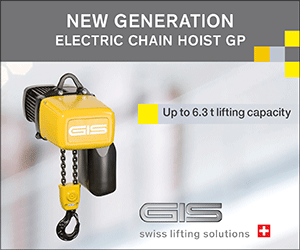Hybrid Power Pack Completes Konecranes’ Range of RTG Power Options
Konecranes has introduced a hybrid (diesel/electric) power option for its rubber-tired gantry cranes (RTGs), which can reduce diesel fuel consumption by over 60 percent. With the addition of this new power option, Konecranes now provides a full range of solutions for RTGs: Hybrid Power Pack, Diesel Fuel Saver, and two electric power options, the Cable Reel and Busbar.
Customers can choose either a diesel or electric solution, depending on their business requirements. The Hybrid Power Pack and Diesel Fuel Saver provide the flexibility of diesel power, while the two electric options provide the benefits and convenience of electricity – no diesel, less maintenance, less noise and lower emissions.
The Konecranes Hybrid Power Pack turns a fully-diesel RTG into a diesel/electric hybrid RTG. Whenever possible, the crane is operated with electrical power drawn from the energy store. Like a hybrid car, it takes the energy generated during braking and converts it into electricity to recharge the batteries. Depending on usage, this solution can significantly reduce diesel fuel costs. Put another way, the RTG can operate much longer on a tank of fuel.
The Diesel Fuel Saver provides power-on-demand, matching the RPMs of the RTG engine to the work the machine is doing. It ensures that the diesel engine is running at maximum efficiency at all operating points, without high-speed idling. Compared with conventional diesel engine operation, the Diesel Fuel Saver can considerably reduce fuel consumption, resulting in cost savings of tens of thousands of euros per RTG per year in typical operation.
The Cable Reel and Busbar options convert the RTG to fully-electric operation, eliminating diesel exhaust emissions and ensuring quiet RTG operation. The latter is an important consideration when the container terminal is located near a residential area. There is no downtime for refueling, so the RTG can spend more time in productive operation. The time saved by not refueling can amount to up to one working week per year.










